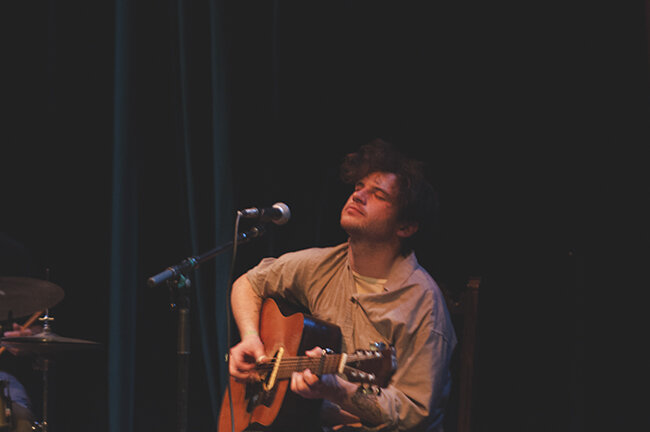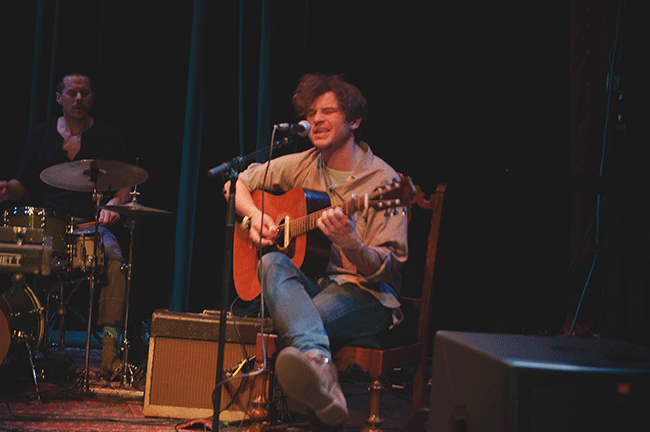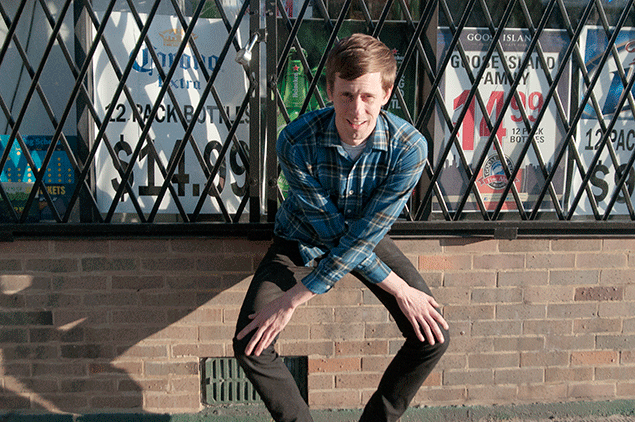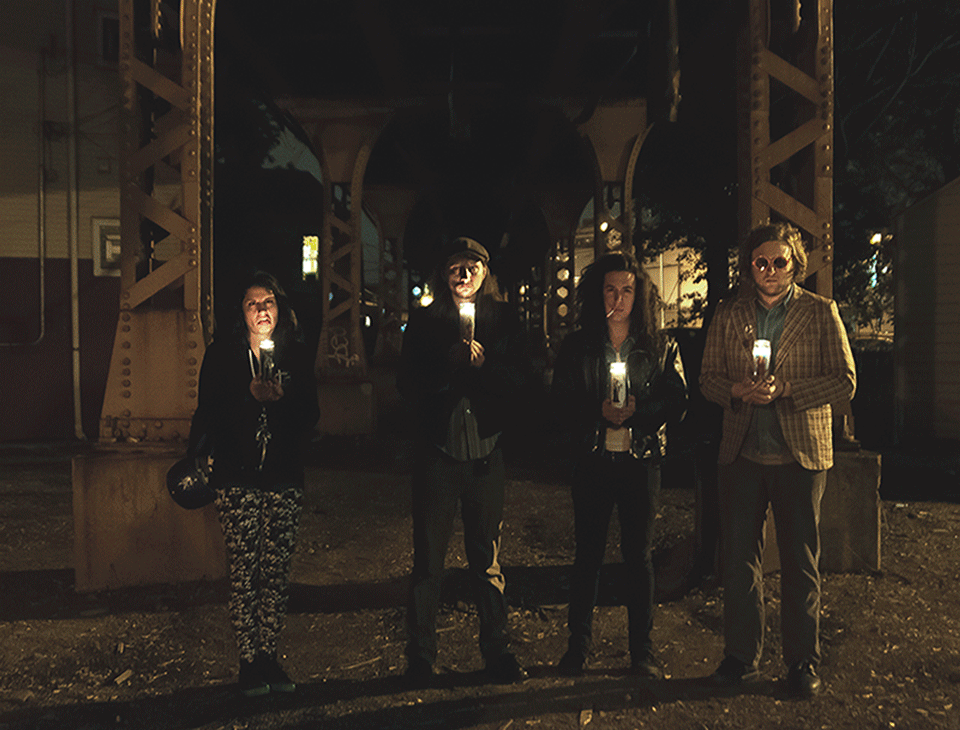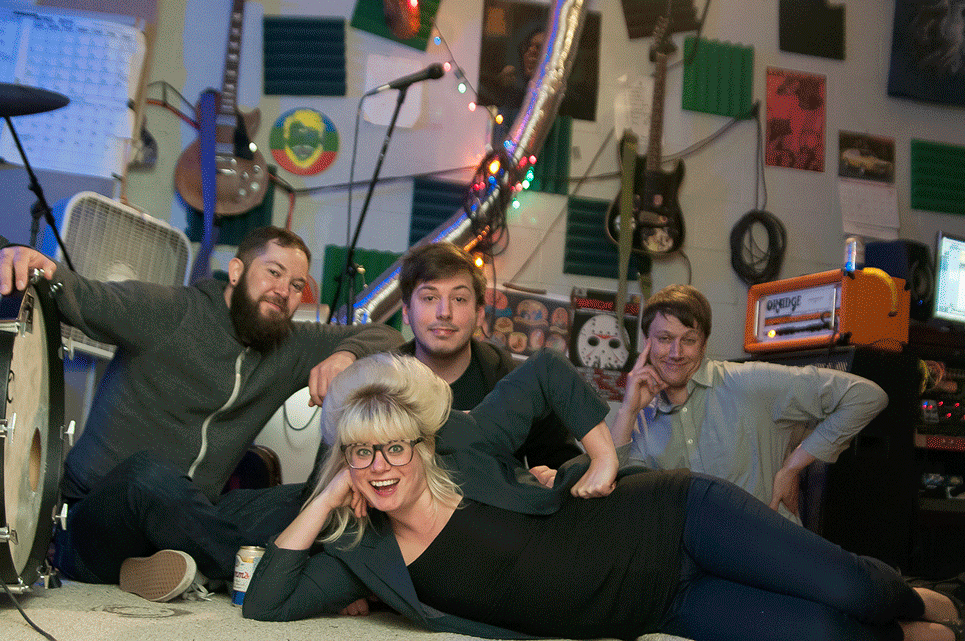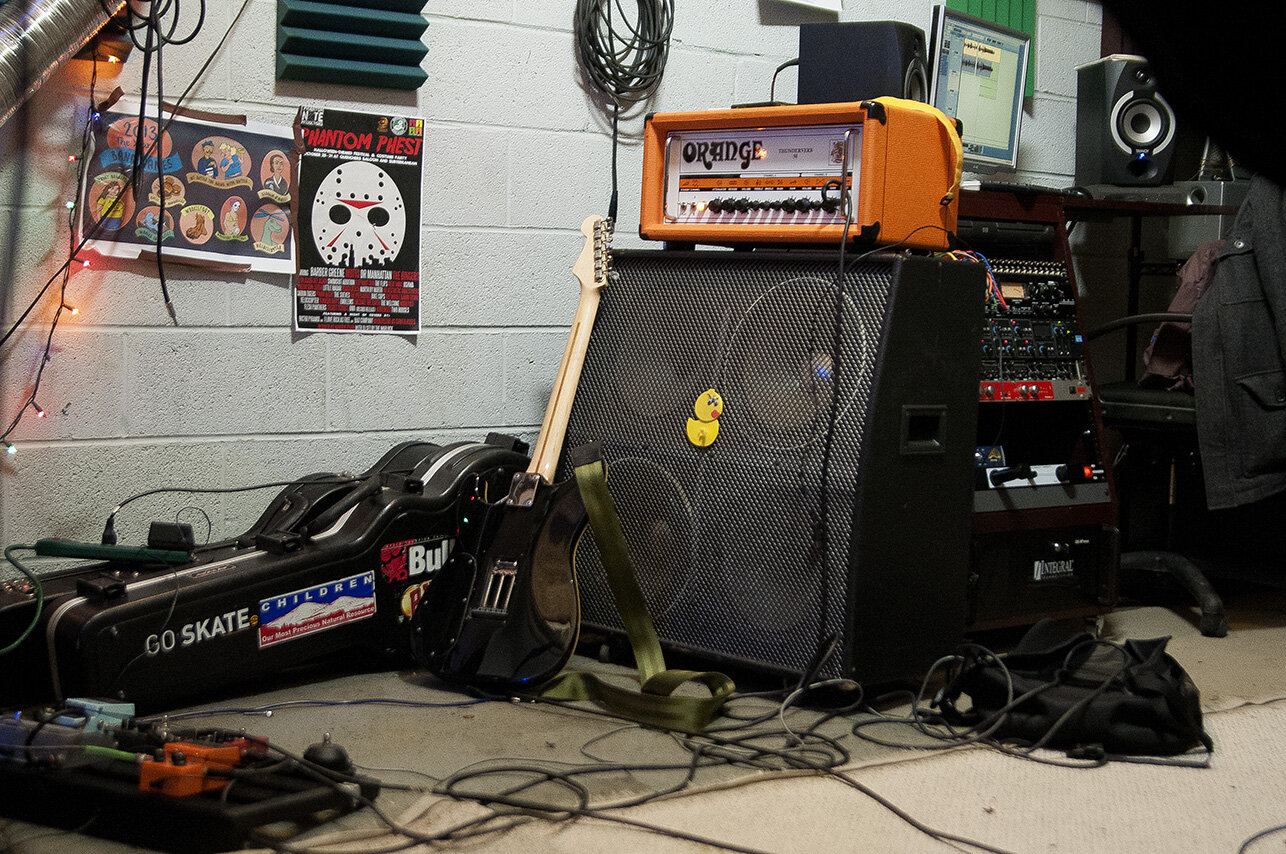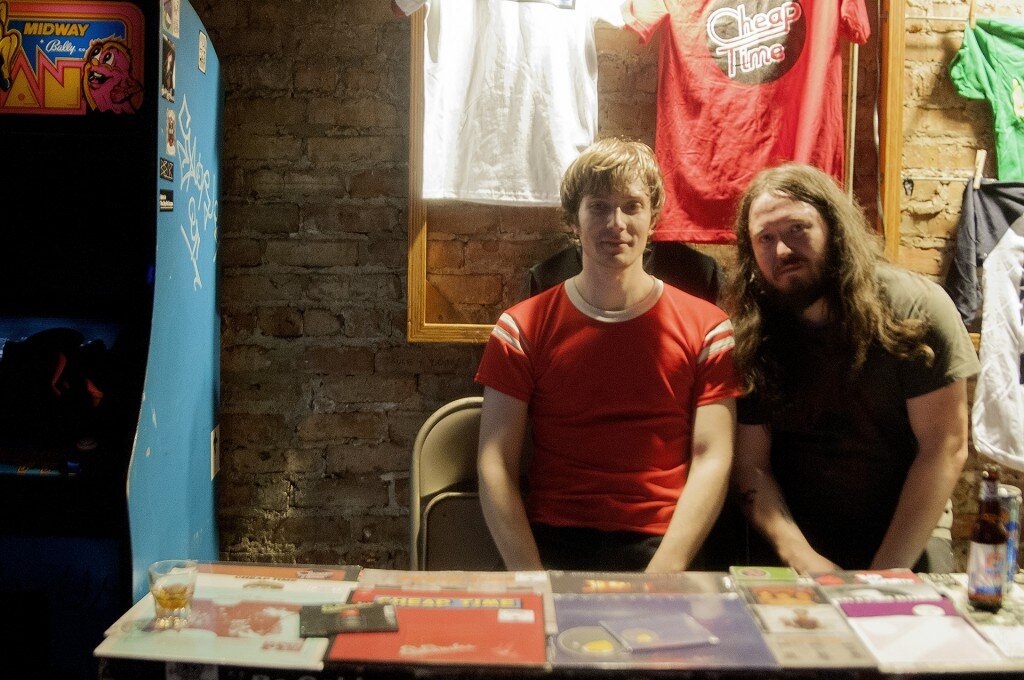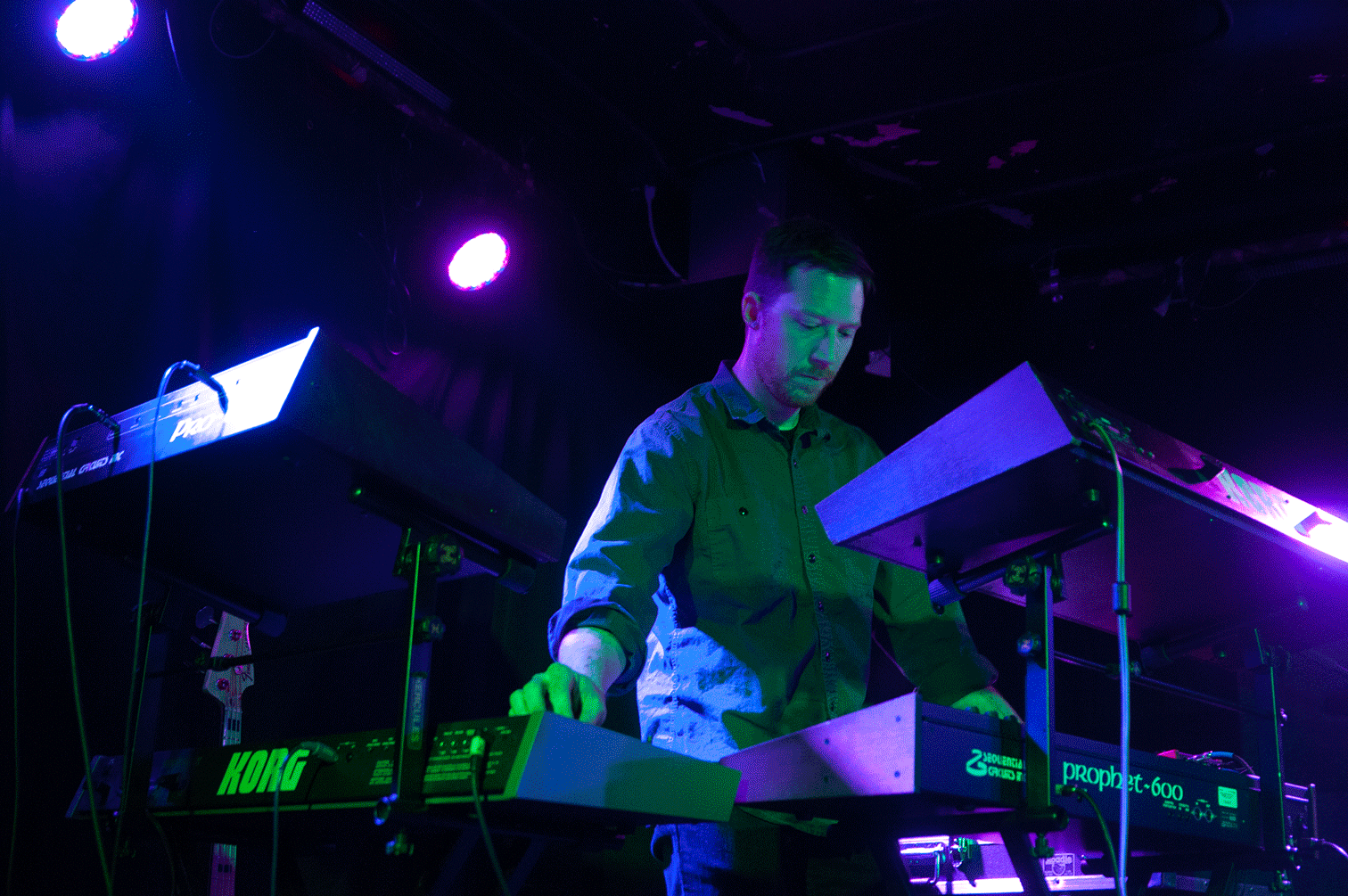Big Dipper's got a one track mind, and it's headed full-force into the depths of his own success and happiness. Ever since releasing his first EP, 2013's They Ain't Ready, the Chicago-bred rapper has quickly become everyone's favorite filth and slime-covered bear. With his inspiring confidence on stage, a personality that is wildly vivacious, his ability to stay true to himself and those around him, and a beats/flow comb that makes you want to shake your booty for the rest of eternity, it's pretty damn easy to see why we fall so hard for Brooklyn's next biggest thing. (He lives in Brooklyn now.)Big Dipper came back to the Bottle last week for a show that started with a panel discussion, hosted by the Illinois Humanities Council, and transitioned - seamlessly, we might add - into celebrations of drag, performance, femininity, and self-expression. In between sets, Big Dipper and I had some sidewalk sausages and talked all things Big Dips. We also saws some really cute dogs and danced in the street.ASHLEIGH DYE: I know hip hop and rap were a big part of your childhood, but when did the performance and visual aspect come into play? When did you realize you wanted to fuse all of those elements into Big Dipper?BIG DIPPER: Well, I went to theater school, so I was also really attracted to performance and showmanship and putting on a spectacle. I was working in Chicago doing video work. I was working as an assistant. We were doing really basic videos for non-profits and I saw the potential for video work. I realized all you need is a vision and access to the equipment. It was immediately after I made my first song as Big Dipper that I wanted to do a video for it. It was originally going to be a one-off, we made Drip Drop, and then we made the Drip Drop video. I even made a Kickstarter for it, it was the first thing I did. I’ve always been about the music, the visual, the performance, the everything. I don’t see myself as a trained musician. I don’t really have good pitch, I can’t really sing, but I know what sounds good and the type of story telling I want a song to have. That’s what I’m attracted to: The whole picture.AD: Do your live shows have as much planning as your music videos?BD: Absolutely, definitely when I first started. Any time I work with back-up dancers we’ll have a rehearsal, we’ll talk through the entire set list, we’ll talk about all the story telling aspects of each song. Like, this song is about fucking, this next song is about falling in love, this songs about turning up at the party, so how do those feed into one another? I plan my live sets like that.AD: What’s it take to be a Big Dipper back up dancer?BD: You have to have a lot of personality. You have to be pretty fearless, too. I just did a show up in Ithaca and my three back-up dancers were some of my friends. One runs an organic good company, one is a baker who makes vegan cupcakes, the other one is a teacher’s aid for a special needs class. None of them are trained dancers, but they’re my friends and they’re super down to shake their ass. That’s what it’s about. It’s about attitude and having fun, not who can put their leg highest.AD: The first time I saw you the backup dancers were one of my many favorite parts of the show. They were throwing it down, but also looked like some normal-ass people.BD: I don’t look like the typical rapper. If you sort of play into 90’s stereotypes of gay men, that very trim, clean shaven man, I don’t look like that either. I’m not stereotypical across the board, so I don’t strive to have any of the aspects of my show be stereotypical.AD: How does BD existing in Brooklyn differ from BD existing in Chicago?BD: I mean, Brooklyn is a different city, but I feel like I exist the same. The clubs and parties are different in BK and Chicago, but it's all about the people really. I have such a strong home base in Chicago with artists and performers that I want to work with for the rest of my life, but that is growing, too, in the Brooklyn and NYC communities that I am a part of.AD: You have such a commanding confidence about you and your music; it's so compelling. What's the source of your confidence?BD: Hmmm, not sure. I mean I know when I'm good at something I feel confident. But, often times I feel shy or awkward when I don't have a job to do, came to a party alone, or don't know an environment. When I'm playing a show that is where I am meant to be, up on the stage performing. Knowing that I am doing my job, in the right place, it gives me endless confidence. But, that confidence point can easily waver, and when I get tripped up, I can fall really hard and get down on myself, so when I've got it, I revel in that moment.AD: You've developed such a good amount of grime to your sound! I love "My Phone Go." It's very Missy Elliot circa 2002. How do you keep things so slimy? What comes first, the beats or the raps?BD: The beats always come first. Sometimes I write rhymes here and there on the train, I sort of come up with ideas. But mostly it's when I hear a beat I just start with whatever pops in my head and the song takes shape pretty quickly after that. With the right combo of me and a producer in the studio, I feel like we can make a song in about an hour or less.AD: Watching and hearing what you’ve done from They Aint Ready to the new stuff you’ve been putting out, it seems like you have really hit your stride. Was there a specific breakthrough moment?BD: Well, I’m not very patient, so They Ain’t Ready is literally the first five songs I ever made. There was nothing made during that time that I was like “No, we aren’t going to use that.” So, I am so hungry to get in the studio and work on new material. I put out a mix tape last October and anyone who has been coasting on a mix tape for over a year, I mean c’mon! A bunch of my new stuff is going to be really crazy and out there. When I first started I had a very narrow version of what I could talk about and what I waned to talk about. That has really evolved, especially since moving to Brooklyn and meeting other artist and musicians, and since gaining my own confidence to be a rapper. My flow is different, what I consider doing is different. I'm just working hard, challenging myself to get better with each track, and pushing my own limits of what I think I'm capable of doing. It is really easy to put yourself in a box after making one song or making one video.... to think "this is all I'm capable of." So if I continue to challenge myself to grow as an artist and MC, then my shit will only get better.AD: I really love the new tunes you’ve been putting out, especially "Love Jam," literally the best love song I've ever heard; I keep singing it to my boyfriend. It also seems like the first time we've seen a softer side to BD. What inspired you to slow things down a bit?BD: I just wanted to do something different. Everyone always expects me to be so raunchy in person, but it really just comes out of me when I perform or record, so I wanted to challenge myself to do something sweeter. I love "Love Jam," as well.AD: Describe Big Dipper's best date. BD: Sex. Food. Movie on the couch. Sex. Donuts. AD: What’s your dream video collaboration?BD: Oh man, to me it’s always about scale. I feel confident in my artistry, I feel confident in my collaborators, and I think that we think things through well and have good visions. With unlimited budget I just think about everything I could have done with our past videos, everything that we are doing, just blowing it up bigger. It’s like Drake says, "no new friends." Chicago people are people I was making art with three years ago and if anything ever were to pop off and leave me with more financial resources I just want to keep working with the same people I’ve been working with, just on a larger scale.AD: I can’t wait to see "Vibbin'." You’ve been such a tease with all those photos you’re posting!BD: I literally look like a Disney princess in that video. The way that whole thing comes together looks like a Disney situation and then I have another new video that’s such like a green screen, Tumblr, very sort of independent music act type video. Being able to put both those things out in the world, being able to self-fund the green screen video and raise almost $10,000 for the other one, I feel so lucky I can straddle those two worlds. I just want to do it on a much bigger scale.AD: Rap can be so focused on hyperbole and exaggeration. Why is it important to you to stay true to yourself and rap about your life? BD: Rap is about authenticity, and even if other MCs brag about money and cars and sex and whatever, I don't have that lifestyle and I would feel foolish talking about it. I'm broke, I’m an artist, I'm gay, I have a lot of sex, I like to crack jokes, and I like to dance with my friends... and eat donuts and sandwiches... basically, that's what my music is about. I have written for other people before, and I would have to edit myself because I tried hard to make sure it sounded authentic for them, to their experience. That is the most important part of writing, I think. Well, hooks are important, writing stuff that sticks in your head is good, but when it comes to lyrics and subject matter, if you aren't writing from a real place, it is really transparent.AD: What's the significance of keeping your real name obscured?BD: I originally kept my name obscured because I liked the theatricality of it, this sort of mystery performer, but most people know my name at this point, and it isn't too hard to find out. Also, my parents weren't thrilled when I started making youtube videos, but they are into it now... AD: What does your Mom think about your raps? Has she been to a show? Was the intro to "Thick Life" a re-enactment of a real conversation you guys had?BD: The "Thick Life" voicemail is based on MANY conversations I've had with my mom. She hasn't really heard much of the music, but both my parents have watched a few of the tamer YouTube videos. They are supportive because they see that get to travel for shows and play fun gigs and that there are people out there who like what I'm doing. As long as I don't ask for money, I think we are goodAD: Lastly, what has been your favorite part of your journey as Big Dipper?BD: Everyday it is something new. I have played a ton of really amazing gigs, through crowd sourcing I've had the opportunity to shoot a bunch of cool music videos. I mean, I'm basically living out a super fun dream, and surviving. I'm still alive. Who could really ask for anything more.Words, interview and photos by Ashleigh Dye


